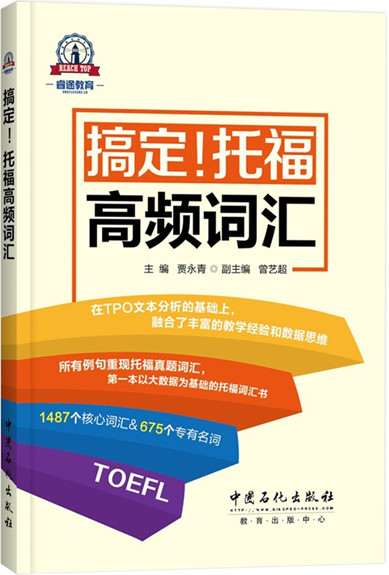2018年托福写作高分范文赏析六
Entrance to Public Life. Adams studied for the bar briefly and then went into business. He was not a good businessman, and he quickly went bankrupt. His father paid off his debts and established Samuel as the manager of the brewery, which had grown so successful it needed little management. Father and son now had more time to devote to politics. In 1746 Governor Shirley vetoed the senior Adams’s appointment to the Governor’s Council, elevating Andrew Oliver instead. Young Samuel regarded this as an insult, and on 4 June 1746 he was elected by a special town meeting to fill Oliver’s seat in the assembly. In his annual report Shirley reported to the king that the elder Adams, whom he said was a gentleman of great ability, was disgruntled by the veto of his appointment, but the younger Adams’s “indefatigable zeal” made him more dangerous. Political Career. In January 1748 Adams launched a newspaper, the Independent Advertiser, which he would publish until British authorities shut it down in 1775. The Advertiser was devoted entirely to politics, and Samuel Adams wrote most of the material, including the letters to the editor. His political position from the 1740s to the 1770s remained consistent: Massachusetts, or any political society, should be free to govern itself. These political essays attracted few readers, and the Advertiser never had a wide circulation. His father’s sudden death in March 1748 left Samuel Adams responsible for the family brewery and other interests, and his brother and brother-in-law, better businessmen, handled most of the financial affairs. Political activity paid little, and Samuel Adams was not attentive to the businesses his father had left him. Adams spent most of his time talking, either with members of the Caucus Club, the leaders of Boston’s business and political communities, or with the sailors and longshoremen who spent long hours in waterfront taverns. Adams would forget everything when he had a chance to talk politics, but if the conversation veered in another direction, Adams would leave in disgust. In 1749 he married Mary Checkley, the daughter of the New South pastor, with whom he had five children, two of whom survived infancy. Politics consumed Samuel Adams, and neither family nor business could distract him. The children especially suffered when Mary Checkley Adams died from a fever in 1757. Political Passion. When his father died, Adams had been elected to the Caucus Club, a political group whose members were able to dominate the Boston town meeting. Because few men had the time to pay close attention to civic affairs, and few were willing to devote the hours necessary to attending such meetings, a handful of organized men were able to control the town meeting. In 1753 the town meeting elected Samuel an assessor, and in 1756 he was a Boston tax collector; but Adams was so lax in collecting taxes that in 1758 the sheriff gave notice that on 5 August his property, including his house and gardens, the brewery, a wharf, and several apartment buildings, would be auctioned off to pay Adams’s outstanding debts. The day of the auction Adams responded with a public letter to the sheriff, threatening to sue anyone who took his property. He and the sheriff conducted a newspaper argument over the auction, which never took place. By 1765, when he was finally removed as tax collector, he had failed to collect more than £8,000 that was owed by his fellow citizens.
- 06-13·2018年托福写作必背经典句型
- 06-08·2018年托福作文素材(9)
- 06-08·2018年托福作文素材(8)
- 06-07·2018年6月托福写作参考范文:政府类
- 05-26·2018年20个托福写作高分句型
- 06-132018年托福写作必背经典句型
- 06-072018年6月托福写作参考范文:政府类
- 05-082018年托福写作高分范文赏析汇总
- 04-20托福写作考试11个高分开头方式
- 03-272018年托福综合写作万能模板汇总
编辑推荐
- 模拟试题
- 历年真题





